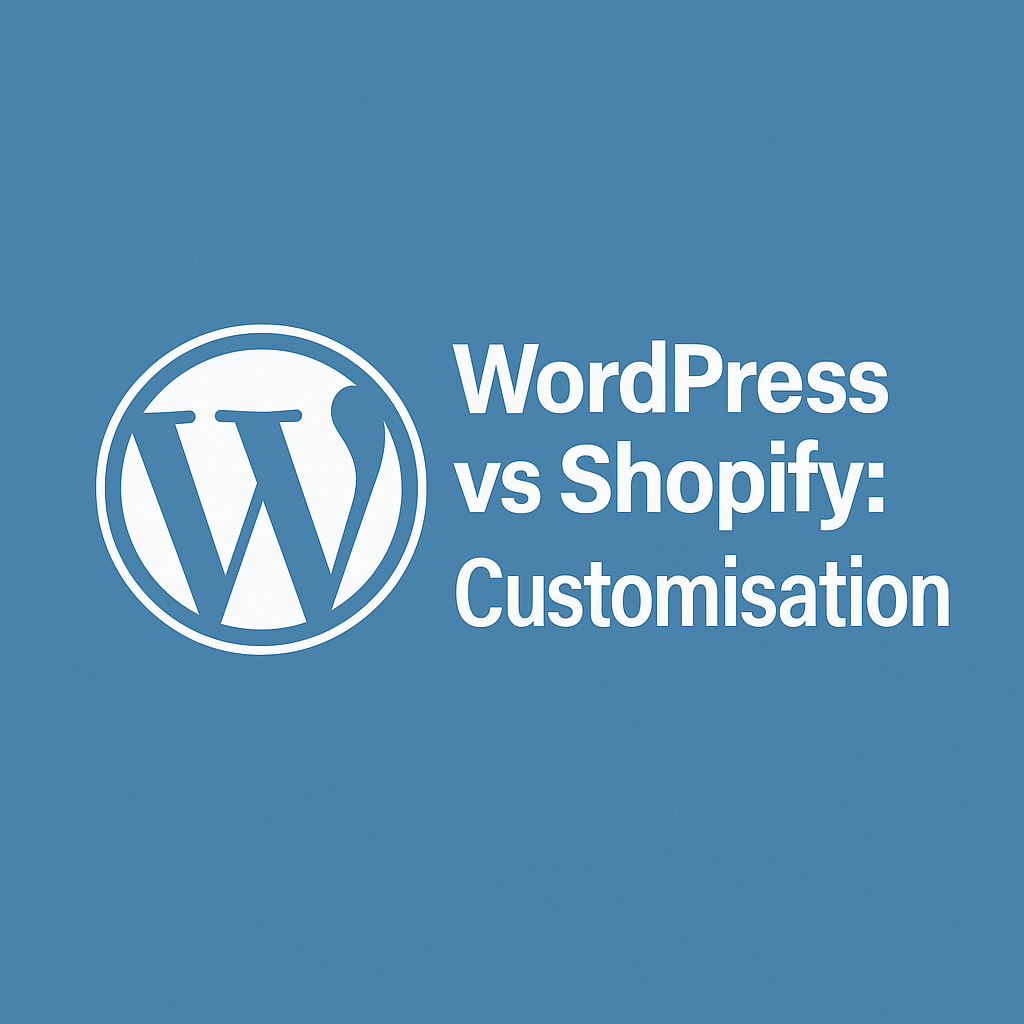If you’re setting up an online store, you’ve probably come across two names again and again: WordPress (usually with WooCommerce) and Shopify. Both are popular, both have their fans, and both can run a successful e-commerce website.
But when it comes to customisation—how much control you have over how your site looks, functions, and grows over time—there are some key differences worth understanding.
At Ezyweb Australia, we’ve worked with clients on both platforms, from local retail shops to service-based businesses branching into online sales. This post isn’t about which is “better”—it’s about helping you choose what suits your business based on how much flexibility you want.
Shopify: Simpler to Set Up, But More Limited in Flexibility
Shopify is a hosted platform. That means everything is already set up for you—hosting, security, updates—and you can get a basic store running fairly quickly.
When it comes to design and layout, Shopify uses themes. You can pick one, customise the colours, change fonts, move a few things around, and add apps from their marketplace. That works well if your store fits into a standard template.
But if you want to:
- Change how your product pages behave
- Add features that aren’t in Shopify’s app store
- Control the checkout flow in detail
… you’ll run into limits. Some things require expensive apps, or you can’t do them without paying a developer or upgrading to Shopify Plus (which is priced for large businesses).
In short, Shopify is tidy, reliable, and ideal if you’re after a clean e-commerce setup without too much tinkering.
WordPress (with WooCommerce): More Freedom, More Responsibility
WordPress gives you complete control. That’s both the upside and the challenge.
With WordPress, you can:
- Design the site exactly how you want it (not just pick a theme)
- Add custom features or integrations
- Control SEO settings in fine detail
- Choose your hosting and scale it as needed
- Build around your business, not fit your business into a box
For example, if you’re running a local bakery and want to offer delivery zones, subscription boxes, and event bookings all from the same site, you can do that with WordPress. You might need a few plugins and some initial setup help, but the flexibility is there.
That said, WordPress does require more involvement. You’re responsible for keeping plugins updated, managing backups, and making sure the site stays secure. If you have a hosting partner like Ezyweb, we handle all of that for you—but it’s something to be aware of.
What We Recommend (Based on Experience)
We’ve built and hosted Shopify stores for product businesses that just needed a simple, clean online store and didn’t want to worry about the tech.
We’ve also built WordPress/WooCommerce sites for clients who wanted to make something more tailored—whether that meant custom checkout features, booking systems, member portals, or multi-language options.
Here’s a quick way to think about it:
| Platform | Best For | Customisation | Maintenance | Hosting |
|---|---|---|---|---|
| Shopify | Businesses wanting simplicity and fast setup | Moderate (within theme limits) | Shopify handles it | Included |
| WordPress | Businesses wanting full control and long-term flexibility | High (fully customisable) | You or your hosting partner | You choose |
Final Thoughts
Choosing between WordPress and Shopify for your e-commerce site comes down to how much you want to control—and how much time or support you have to manage it.
At Ezyweb Australia, we help clients figure this out every day. We don’t push one platform over the other—we help you choose the one that fits your business, goals, and comfort level. And whether it’s Shopify or WordPress, we’ve got your back with reliable hosting, setup, and support.
